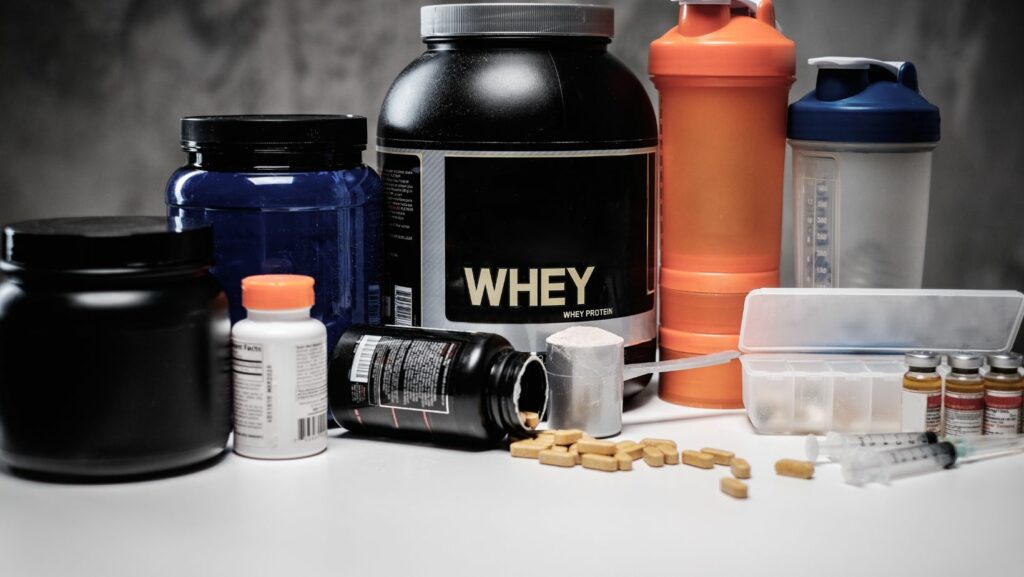In the world of sports, nutrition isn’t just a sidekick; it’s the superhero cape that athletes wear to boost their performance. Imagine trying to run a marathon on a diet of pizza and soda—sure, it sounds fun, but the finish line would feel like a distant dream. Proper nutrition fuels the body, sharpens focus, and helps athletes unleash their inner champions.
Sport Et Nutrition
Sport et nutrition play a vital role in an athlete’s performance. Proper nutrition serves as the foundation for physical strength and endurance. Balanced meals fuel workouts, enabling athletes to optimize their training sessions. Hydration significantly impacts performance as well. Staying adequately hydrated helps to maintain energy levels and prevent fatigue.
Different nutrients contribute uniquely to athletic success. Carbohydrates provide immediate energy for high-intensity activities. Proteins assist in muscle repair and growth after intense workouts. Fats serve as a long-lasting energy source, especially during prolonged exercises. Vitamins and minerals bolster immune function and support overall health.
Athletes must also consider timing their meals. Consuming carbohydrates and proteins before and after workouts enhances recovery and performance. Mealtime planning should include snacks to sustain energy during training. Nutrient timing influences not only immediate performance but also long-term athletic success.
Customization in diet is important for diverse sports disciplines. Endurance athletes may require higher carbohydrate intake, while strength-focused athletes might prioritize protein. Individual dietary needs can vary based on metabolic rates and training intensity.
Sport nutrition extends beyond food choices. Supplements may offer added benefits but should not replace whole foods. Athletes benefit from consulting nutritionists for personalized guidance.
Understanding the intersection of sport et nutrition empowers athletes. Improved nutrition leads to enhanced performance, increased focus, and greater achievement in sports.
Importance of Nutrition in Sports
Nutrition plays an essential role in enhancing athletic performance. Athletes must understand the impact of proper fuel on their training and competition.
Macronutrients for Athletes
Carbohydrates serve as the primary energy source for athletes, fueling intense activities. Protein assists in muscle repair and development, supporting recovery after workouts. Fats provide a longer-lasting energy supply, beneficial for endurance sports. Balancing these macronutrients optimizes performance. Athletes engaged in endurance activities often require higher carbohydrate intake, while those focused on strength may prioritize protein-rich foods. Tailoring macronutrient distribution according to individual needs maximizes overall effectiveness.
Micronutrients to Consider
Micronutrients are crucial for overall health and performance. Vitamins and minerals support various bodily functions, including energy production and immune health. Iron plays a vital role in oxygen transport and energy metabolism, especially for endurance athletes. Calcium and vitamin D contribute to bone health, reducing injury risk. Athletes should incorporate a variety of colorful fruits and vegetables to ensure adequate micronutrient intake. Monitoring specific micronutrient levels can also enhance performance and recovery, reinforcing the importance of a well-rounded diet.
Different Diets for Athletes
Nutrition plays a vital role in athletic performance. Athletes often rely on specific dietary strategies to meet their unique needs.
Protein-Packed Diets
Protein-packed diets support muscle repair and growth. Athletes, especially those focused on strength, require higher protein intake. Lean meats, fish, eggs, and plant-based proteins like legumes and quinoa form the backbone of these diets. Daily protein needs may vary, generally ranging from 1.2 to 2.0 grams per kilogram of body weight, depending on the sport. Meals rich in protein consumed post-workout enhance recovery. Integrating protein in breakfast, lunch, and dinner helps in consistently meeting daily goals.
Carbohydrate Loading Strategies
Carbohydrate loading strategies optimize energy reserves. This technique benefits endurance athletes aiming for peak performance during events lasting longer than 90 minutes. Consuming 8 to 12 grams of carbohydrates per kilogram of body weight in the days leading up to an event maximizes glycogen stores. Foods such as pasta, rice, potatoes, and fruits serve as excellent sources. Tapering exercise while increasing carb intake prepares the body for rigorous demands. Proper hydration plays a crucial role in effective carbohydrate loading, ensuring athletes feel energetic and ready for competition.
Supplements in Sport Et Nutrition
Supplements play a key role in supporting athletic performance and recovery. Athletes often turn to various supplements to enhance their diet.
Commonly Used Supplements
Protein powders, including whey and plant-based options, assist in muscle repair and growth. Creatine helps improve strength and power during short bursts of activity. Beta-alanine can reduce fatigue and increase endurance in high-intensity exercise. Branched-chain amino acids (BCAAs) support muscle recovery and may decrease soreness. Omega-3 fatty acids play a role in reducing inflammation and enhancing heart health. Each supplement offers unique benefits that can complement a balanced diet.
Safety and Regulations
Safety and regulation are crucial in the supplement industry. Many supplements lack FDA approval, meaning quality and efficacy can vary significantly. Athletes should seek products with third-party testing to ensure purity and potency. Ingredients often need to be checked for banned substances to avoid disqualification in competitions. Consulting with a qualified nutritionist can guide safe supplement use tailored to individual needs. Understanding potential interactions with prescribed medications also helps ensure athlete safety.
Tailoring Nutrition to Specific Sports
Tailoring nutrition to specific sports enhances athletic performance significantly. Different sports demand distinct dietary adjustments to fuel and recover effectively.
Endurance Sports
Endurance athletes rely on high carbohydrate intake to sustain prolonged activity. Carbohydrates serve as the primary energy source during long events, helping maintain optimal performance levels. Consuming complex carbohydrates such as whole grains, fruits, and vegetables provides sustained energy for training sessions and competitions. Hydration ranks equally important, as fluid loss can hinder performance. Electrolyte-rich drinks, particularly those containing sodium and potassium, replenish lost minerals during extended efforts. Timing meals strategically also plays a crucial role, with athletes benefiting from consuming carbohydrates before and after workouts to enhance recovery.
Strength Sports
Strength-focused athletes prioritize protein to repair and build muscle effectively. High-quality protein sources, such as lean meats, eggs, and dairy, should feature prominently in their diets. Daily protein intake must align with training volume; athletes typically require 1.6 to 2.2 grams of protein per kilogram of body weight. Incorporating protein-rich snacks post-workout accelerates recovery and supports muscle synthesis. Additionally, healthy fats contribute to overall energy balance, thus playing an essential role in strength training. Beyond macronutrient intake, micronutrients like calcium and vitamin D enhance bone health, which athletes in strength sports must prioritize to prevent injuries.
Future of Sport Nutrition
Nutrition is a game-changer for athletes striving to enhance their performance. By fueling their bodies with the right balance of macronutrients and micronutrients, they can unlock their full potential. Tailoring diets to specific sports ensures that athletes meet their unique energy and recovery needs.
Hydration and meal timing play vital roles in maintaining energy levels and optimizing recovery. While supplements can provide additional support, they should complement a well-rounded diet rather than replace whole foods. Athletes who invest time in understanding their nutritional requirements will likely see significant improvements in their performance and overall well-being. The journey towards athletic excellence starts with making informed dietary choices.

